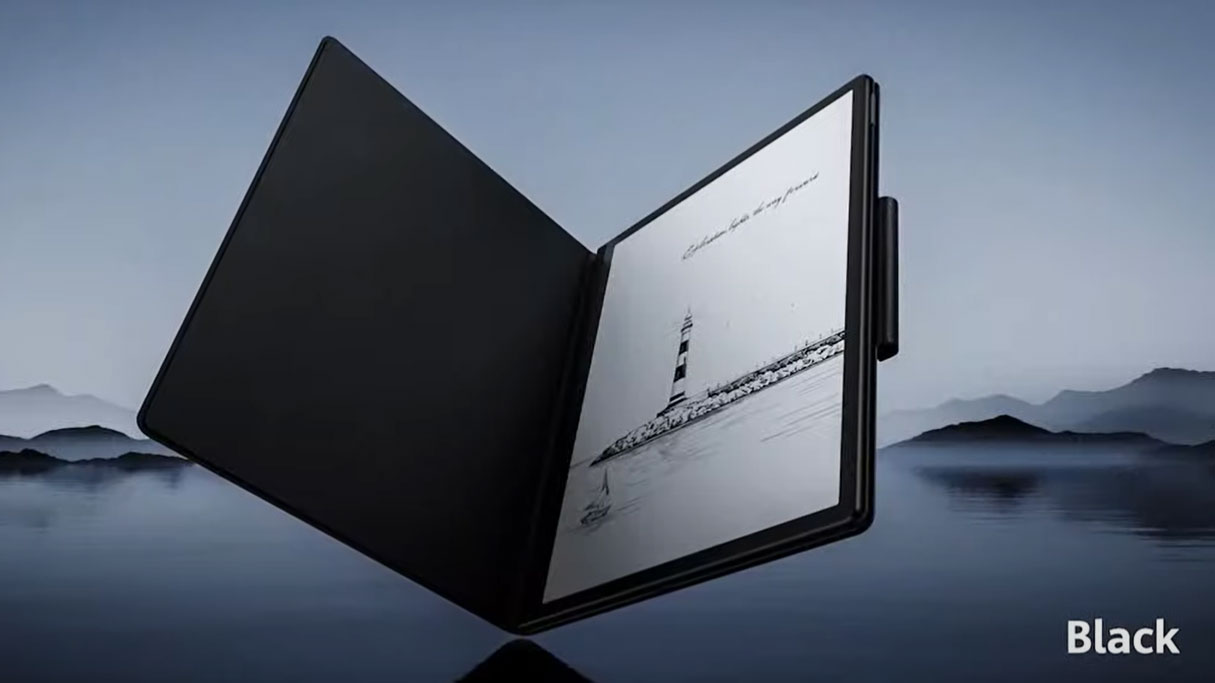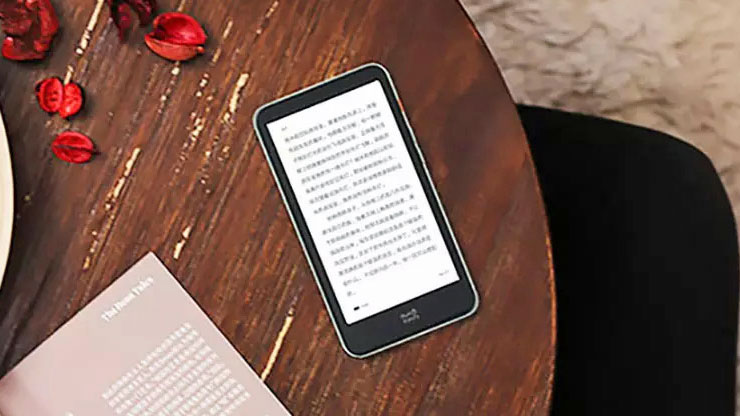After the Huawei MatePad Paper, here are 5 more brands we want to see make ereaders
Apple, Sony, Samsung and more

Sign up for breaking news, reviews, opinion, top tech deals, and more.
You are now subscribed
Your newsletter sign-up was successful
One of the most intriguing product launches of MWC 2022 is the Huawei MatePad Paper, which is a tablet with an E-Ink screen. It's also the first product from Huawei to use this kind of tech.
E-Ink screens are different from LCD, OLED, or AMOLED. The reflective technology recreates the look of ink on paper. It's been popularized by all the best ereader brands, like Amazon Kindle devices and Kobo tablets, as well as Onyx Boox ones.
Huawei's new tablet, which comes with a stylus, access to the company's Huawei Books app, and even plays video, is an interesting step into a tech territory that Amazon has previously dominated with its Kindles.
This isn't the first time E-Ink spread its monochrome wings to other brands, Back in the mid-aughts, dozens of companies big and small tried to capitalize on Amazon's Kindle success. CES back then had an entire area devoted to all the new E-Ink tablets. There were even a few color ones. None survived and the tech world quickly turned its attention to iPad competitors.
But now here we are again. Huawei's brand new ereader debut has got us thinking: What if other companies jumped back into the breach and launched E-Ink devices? What would they be like?
Here's a list of five companies that could put out interesting devices into this long-neglected sector.
Apple
This is an obvious one - what would an Apple ereader look like? What would it be called? iReader?
Sign up for breaking news, reviews, opinion, top tech deals, and more.
The company is notorious for only launching products when the tech is in a 'finished' state, which is why we haven't seen a foldable from it. In the Apple ereader world that likely means color displays, useful extra apps, and easy connectivity between iPads and iPhones.
That latter point is really important, as Apple fans stick to their ecosystem, and lots of the company's products work well in tandem together. If you can easily pick a book on your iPhone and it download it onto your iReader, or write a note on the ereader with an Apple Pencil, and then drop the result onto your iPad, it'd be a handy device.
Sure, Apple isn't exactly known for offering affordable tech, so the iReader would likely be an expensive device. But for Apple fans, it'd be a handy extra piece of tech.
Samsung
If Apple does it, Samsung has to, too.
Samsung could safely be characterized as Apple's rival, and the company puts out lots of tech that could tempt people who'd otherwise buy an i-device.
A Samsung ereader could borrow traits from the company's other gadgets. Samsung puts out some huge-screen devices, like its Ultra phones or tablets, and has lots of features for its S Pen stylus that make it useful for note-taking. Perhaps a Samsung ereader could be a useful note-taking device that has a much longer-lasting battery than the Tab S8 Ultra or similar.

Sony
Sony's an interesting one on this list, as it actually did make ereaders, called the Sony Readers. Yeah, really imaginative.
When it comes to its gadgets, Sony excels when it makes devices that are specialist tools - just look at its smartphones or cameras. And if it revived its Sony Reader line, perhaps it could do so again.
We could see a device that's designed specifically with note-taking features in mind, similar to the Remarkable Tablet 2, or as a way to both read and mark up books, which would be really useful to students.
Of all the companies on this list, we imagine Sony is the least likely to do an ereader, as it's tried before and doesn't work as closely in the mobile and tablet sphere as the others (it's the only one here not to have released a tablet, recently), but never say never.
Lenovo
Lenovo is pretty good for its entertainment gadgets - its Yoga Pads are great streaming tablets and it has a whole Legion sub-brand for gaming tech. And since reading is entertaining, an ereader doesn't sound outside the realms of possibility.
Judging by Lenovo's habits, we imagine this wouldn't be a very expensive device, but would perhaps be built with utilitarian features like a kickstand or grip.
Lenovo does make lots of productivity devices too, like its ThinkPad laptops, so perhaps we would see an ereader with useful tools to make it emulate your trusty pocket notebook. Still, we think a luxury book-reading device would be more likely.
HMD Global
Like Lenovo, HMD Global is big on its affordable tech - you'd know it as the brand that makes Nokia devices.
We've listed lots of companies on this list that could build premium devices, but it's always worth remembering the affordable ones, especially since that's what Amazon makes with its Kindle device (depending on which model you choose).
HMD Global's products are built to last, and you'd want an ereader to last you on long trips, in rough conditions, and in bags full of objects it could bump into. Plus, HMD's hardware is supported with software updates for ages and often has huge batteries, too, all things that would be useful for an E-Ink slate.
Honorable mention: Xiaomi

Xiaomi is an honorable mention, and not a 'true' listing, because the company does actually make ereaders, and releases a new one every year or so.
It's on this list, though, because those ereaders only go on sale in China, and we haven't seen any get worldwide launches. The company confirmed to TechRadar that it's not ruling out global launches, but that it hasn't planned one, either.
In the last few years, Xiaomi has cemented itself as a player in the premium market, but it also has great value, budget, and mid-range phones. So, we could rely on the brand's ereaders to be competitive.
- MWC (Mobile World Congress) is the world's largest showcase for the mobile industry, stuffed full of the newest phones, tablets, wearables and more. TechRadar is reporting on the show all week. Follow our MWC 2022 live blog for the very latest news as it happens and visit our dedicated MWC 2022 hub for a round-up of the biggest announcements.

Tom Bedford is a freelance contributor covering tech, entertainment and gaming. Beyond TechRadar, he has bylines on sites including GamesRadar, Digital Trends, WhattoWatch and BGR. From 2019 to 2022 he was on the TechRadar team as the staff writer and then deputy editor for the mobile team.